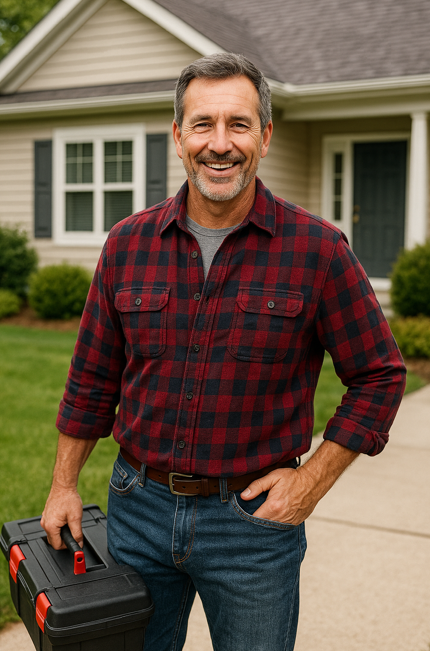Why Airflow Design Is Non-Negotiable 💨
You can buy the most efficient, high-SEER2, R-32 system on the market—but if your airflow’s jacked up, it’s all wasted.
Poor airflow leads to:
-
Uneven temps ❄️🔥
-
Noise and whistling
-
Short cycling
-
Low system efficiency
-
Premature wear on compressors and blowers
According to the U.S. Department of Energy, as much as 30% of conditioned air is lost due to duct issues in the average home. Thirty percent! That’s a third of your money just floating into your attic or crawlspace.
R-32 Heat Pump Systems: What’s Different? ⚙️
R-32 units are designed for higher efficiency and lower charge volume. That means they:
-
Use smaller compressors, with tighter control logic
-
Often require slightly higher airflow rates per ton
-
Are more sensitive to static pressure issues
So your airflow design has to be tighter. Not perfect, but intentional. Your new R-32 heat pump is a Ferrari—don’t saddle it with a duct system built for a go-kart.
Duct Sizing 101: Don’t Wing It 📏
Let’s talk numbers:
-
CFM (Cubic Feet per Minute): You want about 400 CFM per ton of cooling.
-
Undersized ducts = higher static pressure = reduced airflow
-
Oversized ducts = lower velocity = weak room delivery
Use Manual D from ACCA to calculate it properly. (Or hire a pro who does.)
A great resource? Energy Vanguard’s duct design deep dive. They’re HVAC nerds in the best way possible. 📚
Mike’s Tip: “If your contractor says, ‘We’ve always done it this way,’ fire them. Get someone who actually knows how to run a Manual D.”
The Power of Zoning: Comfort by Room 🌡️
Zoning lets you control different parts of the house independently—usually with:
-
Multiple thermostats
-
Dampers in the duct lines
-
A central zone controller
R-32 heat pumps pair beautifully with zoning because:
-
They modulate more precisely
-
They’re quieter
-
They don’t short-cycle as easily under part-load
Want the master bedroom cooler than the nursery? Zoning makes that happen. Want to shut off airflow to the guest room when no one’s visiting? Zoning’s got you.
📖 This zoning guide by ACHR News is solid if you want more detail.
Airflow Basics: CFM, Static Pressure & Velocity 🌬️
Let’s break it down:
-
CFM = volume of air
-
Static Pressure = resistance in your ducts
-
Velocity = speed of air movement
You want the Goldilocks setup:
-
Not too little airflow (which causes freezing coils)
-
Not too much velocity (which causes noise)
-
Not too much pressure (which wears out your blower)
R-32 systems are more forgiving than you’d think—but don’t abuse the flexibility.
Duct Materials: Flex vs. Rigid vs. Hybrid 🧰
Each duct material comes with trade-offs:
| Type | Pros | Cons |
|---|---|---|
| Flex Duct | Cheap, easy to install | Kinks easily, airflow loss |
| Rigid Metal | Durable, low resistance | Expensive, harder to install |
| Hybrid | Best of both | Labor-intensive upfront |
Flex ducts are everywhere—but if they’re not pulled tight and insulated well, you lose airflow fast.
What Happens When It’s Done Wrong?
Common symptoms of bad airflow:
-
One room always cold, one always hot
-
System constantly running but not cooling
-
Loud whooshing or whistling noises
-
Frozen coils or refrigerant line sweating
-
High energy bills with mediocre comfort
If your R-32 heat pump is doing all this, it’s probably not the system—it’s the ducts.
Balancing Dampers & Smart Thermostats 🧠
Use manual dampers to fine-tune airflow per room. Combine them with smart thermostats like Ecobee or Honeywell T9 that support multi-zone layouts.
Better yet, try zoning kits like:
-
Honeywell HZ322 (great for two-stage heat pumps)
-
Arzel Zoning Systems (pneumatic zoning—Mike loves these)
-
EWC Controls (if you want premium-grade zoning logic)
Smart zones + R-32 = efficient, personalized comfort. No more duct tape and praying.
Pro Tips for R-32 Retrofitting 🔄
Upgrading from R-410A or R-22?
-
Flush the old refrigerant lines or replace them
-
Resize your ducts if your airflow needs change
-
Recalculate your Manual J (yes, again)
-
Check for plenum leaks, flex kinks, and attic losses
-
Consider insulating old metal duct runs
Also, make sure your air handler or indoor coil is spec’d for R-32. They’re not interchangeable with R-410A.
Mike’s Final Take: Invest in the Hidden Stuff 🛠️
“People love spending $3,000 on a smart thermostat and then won’t spend $300 to fix a duct leak. Don’t be that guy. Your system is only as good as its airflow.”
Here’s what Mike says you should always ask:
-
Was Manual J and D performed?
-
What’s the CFM per register and total system airflow?
-
Will they test static pressure before AND after install?
-
Is your duct system zoned, sealed, and balanced?
If you don’t hear “yes” across the board, pause and reevaluate. R-32 systems are precise machines—they deserve precise airflow.
🧰Stay smart, stay comfortable, and I’ll catch you next time! - Mike🧰







